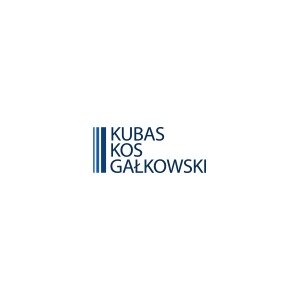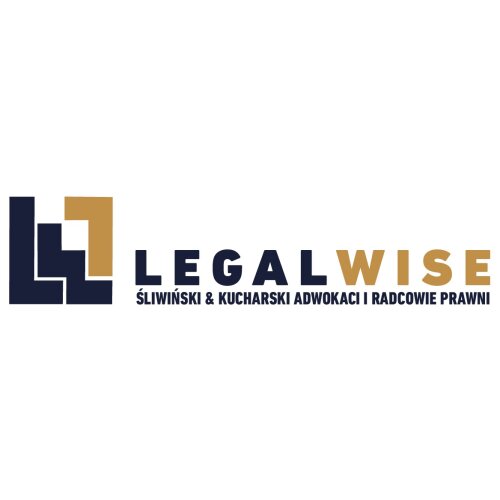Best Natural Resources Lawyers in Warsaw
Share your needs with us, get contacted by law firms.
Free. Takes 2 min.
List of the best lawyers in Warsaw, Poland
About Natural Resources Law in Warsaw, Poland
The city of Warsaw, as the capital of Poland, plays a significant role in managing and regulating natural resources within its jurisdiction. Natural resources law encompasses various legal areas involving the use and management of natural resources such as land, water, minerals, forests, and air quality. Due to Poland's commitment to sustainable development and environmental protection, the legal framework surrounding natural resources in Warsaw is continually evolving. This makes it essential for individuals and businesses to stay informed about current laws and regulations to ensure compliance and successful resource management.
Why You May Need a Lawyer
Engaging the services of a lawyer specializing in natural resources law is crucial in several circumstances. Common situations include navigating regulatory requirements for resource extraction and usage, obtaining necessary permits for development projects, addressing compliance issues with environmental laws, mediating land use disputes, and dealing with litigation involving pollution or resource contamination. Specialized legal assistance can help effectively navigate the complexities of both local and national laws concerning natural resources.
Local Laws Overview
Local laws relevant to natural resources in Warsaw are primarily shaped by Polish national legislation, EU regulations, and regional policies. Key areas include:
- Environmental Protection Law: Governs how resources should be managed to prevent environmental degradation.
- Water Management Act: Covers the regulation and distribution of water resources.
- Mining Law: Sets the framework for the exploration, extraction, and management of mineral resources.
- Forest Act: Dictates the conservation and sustainable use of forest resources.
- Spatial Planning and Development Act: Provides guidelines for land use and development projects.
These laws aim to balance resource utilization with the preservation of environmental quality and community welfare.
Frequently Asked Questions
What are the main natural resources available in Warsaw?
The region surrounding Warsaw is rich in forestlands, and water resources, and has potential for agriculture. Additionally, the area may have certain mineral deposits, although resource extraction is less intensive in urban areas.
How does the law regulate water usage in Warsaw?
Water usage is regulated under the Water Management Act, which includes provisions for water quality, distribution, and conservation. Permits may be required for significant usage or alteration of water resources.
What legal steps are involved in obtaining a mining permit?
Obtaining a mining permit involves a comprehensive process that includes environmental impact assessments, community consultations, and adherence to environmental regulations. Applications must be submitted to the relevant governmental body for approval.
How are pollution disputes handled legally in Warsaw?
Pollution disputes are typically addressed through negotiations, administrative proceedings, or litigation. Lawyers can assist in mediating such disputes and ensuring compliance with environmental laws.
What role does the local government play in natural resource management?
The local government is instrumental in enforcing regulations, issuing permits, and ensuring compliance with Polish and EU laws regarding natural resources. They also play a role in regional planning and environmental conservation efforts.
How can I ensure my construction project complies with local natural resource laws?
Conduct thorough environmental assessments and work with legal experts to obtain necessary permits. Ensure ongoing compliance with the Spatial Planning and Development Act and environmental regulations.
What are the penalties for violating natural resource laws in Warsaw?
Penalties can range from fines, suspension of operations, mandatory remediation actions, to legal proceedings. Severe violations can lead to criminal charges or business closures.
Can I contest the denial of a natural resource-related permit?
Yes, you can appeal such decisions by presenting your case again with additional evidence or through administrative courts. Legal advice is recommended to navigate this process effectively.
How do local natural resource laws interact with EU regulations?
Polish laws must align with EU regulations, with EU directives often shaping local environmental and resource management policies. Compliance with both sets of laws is necessary for legal certainty.
How can legal assistance benefit my business involved in natural resources?
Legal assistance can help navigate complex regulatory landscapes, assist in obtaining necessary permits, ensure compliance with all applicable laws, and provide representation in disputes or negotiations.
Additional Resources
If you require further information or support, consider reaching out to:
- The Ministry of Climate and Environment of Poland
- The General Directorate for Environmental Protection
- Polish Geological Institute
- Local environmental NGOs and advocacy groups
- Academic institutions and research organizations focused on environmental studies
Next Steps
If you need legal assistance concerning natural resources in Warsaw, start by consulting a lawyer specializing in environmental and natural resources law. They can provide tailored advice based on your specific situation and help ensure compliance with all relevant legal frameworks. Additionally, attending seminars or workshops offered by legal and environmental organizations can provide further insight and the opportunity to network with professionals in the field.
Lawzana helps you find the best lawyers and law firms in Warsaw through a curated and pre-screened list of qualified legal professionals. Our platform offers rankings and detailed profiles of attorneys and law firms, allowing you to compare based on practice areas, including Natural Resources, experience, and client feedback.
Each profile includes a description of the firm's areas of practice, client reviews, team members and partners, year of establishment, spoken languages, office locations, contact information, social media presence, and any published articles or resources. Most firms on our platform speak English and are experienced in both local and international legal matters.
Get a quote from top-rated law firms in Warsaw, Poland — quickly, securely, and without unnecessary hassle.
Disclaimer:
The information provided on this page is for general informational purposes only and does not constitute legal advice. While we strive to ensure the accuracy and relevance of the content, legal information may change over time, and interpretations of the law can vary. You should always consult with a qualified legal professional for advice specific to your situation.
We disclaim all liability for actions taken or not taken based on the content of this page. If you believe any information is incorrect or outdated, please contact us, and we will review and update it where appropriate.
















